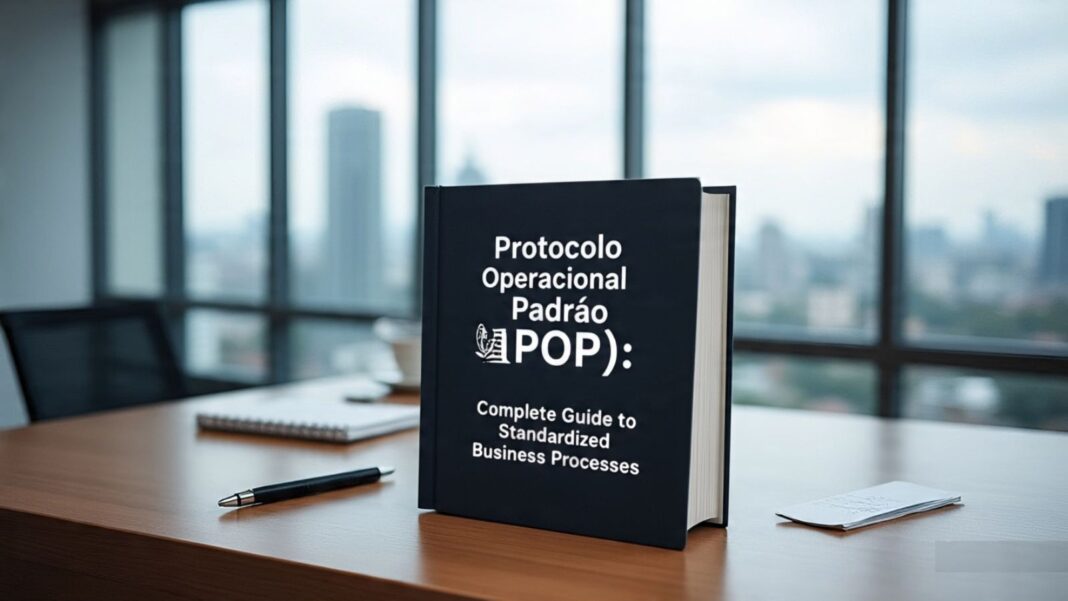Introduction to Protocolo Operacional Padrão (POP)
In the modern business world, efficiency and consistency are non-negotiable. Protocolo Operacional Padrão (POP) — known in English as the Standard Operating Procedure — is a structured framework designed to make workflows smooth, repeatable, and reliable. From startups to multinational corporations, mastering POP can be a game-changer for operational excellence.
This guide explores what POP is, why it matters, and how to implement it effectively so your business runs like a well-oiled machine.
Why POP Matters in Business Operations?
Implementing Protocolo Operacional Padrão:
- Ensures clarity – Every team member knows their role.
- Boosts efficiency – Reduces wasted time and eliminates repetitive mistakes.
- Maintains consistency – Products and services meet the same quality standard every time.
- Improves adaptability – Processes can be updated quickly when business needs change.
- Supports compliance – Meeting legal and industry standards becomes easier.
In short, POP is the foundation for scalable and sustainable business growth.
Key Elements of a Successful POP
A great POP is:
- Clear – No jargon; easy to follow for all employees.
- Consistent – Uniform across departments to ensure quality control.
- Well-documented – Serves as both a training tool and a process reference.
- Collaborative – Created with team input for higher adoption rates.
- Regularly updated – Stays relevant as your business evolves.
How to Develop and Implement a POP?
- Identify the process that needs standardization.
- Consult your team to gather first-hand insights.
- Document each step in simple, clear language.
- Add visuals like flowcharts for faster understanding.
- Review with stakeholders to ensure accuracy.
- Train your team through workshops and practical demos.
- Monitor and refine to keep the POP aligned with business needs.
Mistakes to Avoid in POP Creation
- Ignoring team feedback – Leads to impractical processes.
- Overcomplicating language – Makes it harder to follow.
- Neglecting updates – Turns a POP obsolete.
- Skipping training – Causes inconsistent application.
- Dismissing feedback post-launch – Blocks improvement opportunities.
Real-World POP Success Stories
- Manufacturing – A factory reduced downtime by 30% after implementing a POP for machinery operations.
- Healthcare – A hospital cut medication errors by standardizing administration procedures.
- Tech Startup – Customer satisfaction improved when support responses were formalized in a POP.
Future Trends in POP
- Automation – Streamlining workflows with minimal manual intervention.
- AI integration – Real-time POP updates based on performance data.
- Cloud collaboration tools – Teams access the latest procedures instantly.
- Sustainability focus – Embedding eco-friendly practices into operational protocols.
Conclusion: Why Your Business Needs POP Now
Adopting Protocolo Operacional Padrão means embracing clarity, consistency, and adaptability. A well-designed POP can:
- Reduce errors
- Improve productivity
- Strengthen compliance
- Foster a culture of accountability
Businesses that invest in structured operational frameworks are better equipped to scale, innovate, and thrive in competitive markets.
FAQs on Protocolo Operacional Padrão (POP)
1. What is Protocolo Operacional Padrão (POP) in business?
Protocolo Operacional Padrão (POP) is the Portuguese term for Standard Operating Procedure (SOP). It’s a documented set of step-by-step instructions designed to ensure consistency, quality, and efficiency in business operations.
2. How does POP improve operational efficiency?
POP streamlines workflows by standardizing processes, reducing mistakes, improving communication, and ensuring that all employees follow the same guidelines, resulting in higher productivity and fewer errors.
3. Is POP the same as an SOP?
Yes, POP is essentially the same as SOP but in Portuguese. Both aim to standardize tasks, provide clear instructions, and maintain consistent quality in products or services.
4. How often should a POP be updated?
A POP should be reviewed and updated regularly—at least once a year or whenever there’s a significant change in operations, technology, or compliance requirements.
5. Can small businesses benefit from POP?
Absolutely. Small businesses can use POP to scale more effectively, train new employees faster, maintain consistent service, and improve customer satisfaction without needing complex management systems.

